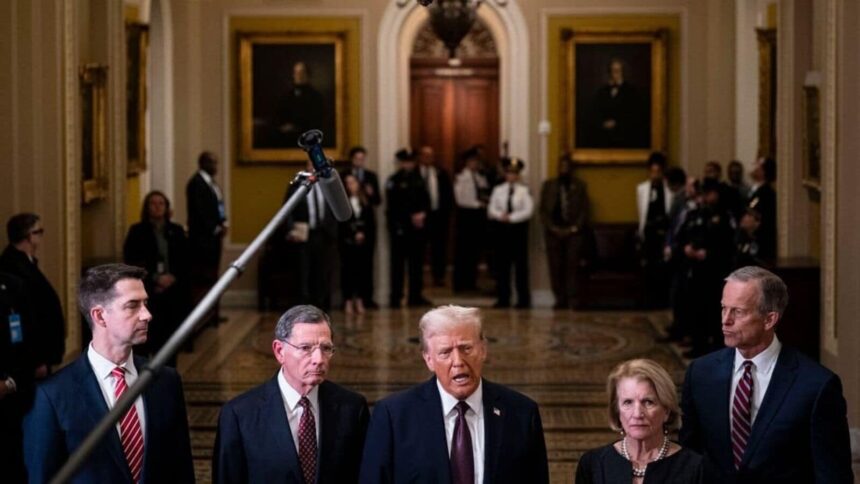Politics News Today: Trump Ready to Bypass Congress on Border and Tariffs
Introduction
In the current political climate, where divisions run deep and reforms are closely scrutinized, President Trump’s recent announcements signal a bold approach to governance. Driven by voter support and a series of favorable legal outcomes, the administration is prepared to implement significant changes without the usual checks from Congress. This blog post aims to delve into the implications of this strategy, its historical context, and what it means for Americans moving forward.
The President’s New Strategy
As of January 17, 2025, news reports indicate that President Trump is poised to use executive powers to address critical issues such as border security and trade tariffs. This strategy marks a shift in approach, one that reflects both confidence in his electoral mandate and a willingness to challenge established norms of legislative collaboration.
-
Voter Support: Trump’s administration is reportedly buoyed by recent polling data that suggests a solid base of support among the electorate. This backing provides the President with the political capital necessary to pursue a more aggressive agenda.
- Legal Precedents: The administration’s confidence is further reinforced by earlier legal victories that have set precedents for executive action. This gives Trump a strong foundation upon which to build his policies without the need for immediate congressional approval.
Shifting the Political Landscape
This approach to governance raises several critical questions:
-
Checks and Balances: Bypassing Congress on key issues such as border security and tariffs has consequences for the checks and balances system that underpins American democracy. While the President has authority over certain executive actions, overreach could provoke significant backlash, both politically and legally.
-
Public Reception: The public’s reaction to this strategy remains to be seen. While it may energize Trump’s base, it could alienate moderates and independents who may view such actions as authoritarian. The latest polling results could reflect changes in public sentiment as these measures unfold.
- Legislative Response: Congress may respond to Trump’s unilateral actions with its own strategies, potentially leading to clashes that could define the next legislative session. Expect calls from Democratic lawmakers for oversight and even efforts to curtail executive power through legislation.
Implications for Border Security
One of the administration’s key focal points is border security, a cornerstone of Trump’s platform during his previous campaigns. With the ability to act unilaterally, several pressing questions arise:
-
Policy Changes: What specific changes will be implemented regarding border security? Will these involve increased funding for border enforcement, changes in asylum processes, or new regulations impacting immigration?
- Human Rights Concerns: Potential changes to border policy could reignite discussions around human rights. The administration will likely face scrutiny over how these measures impact vulnerable populations seeking asylum and the broader implications for U.S. immigration policy.
Trade Policy and Tariffs
Trump’s intentions to bypass Congress extend into economic measures, particularly with tariffs that could reshape U.S. trade relationships:
-
Economic Impact: The administration’s approach could lead to significant shifts in trade dynamics, potentially resulting in retaliatory measures from affected countries. Businesses and industries reliant on international trade may monitor these developments closely.
- Long-term Strategy: Beyond immediate economic impacts, the administration’s tariff policies may signify a longer-term shift towards protectionism that could affect the global trade landscape for years to come.
Conclusion
As President Trump prepares to wield executive power boldly, the political landscape is set for possible upheaval. The decisions made in these critical weeks could redefine the boundaries of presidential authority and the nature of governance in the United States. Stakeholders across the political spectrum will need to remain vigilant, as the outcomes of these actions will profoundly influence not just current policies but the future of American democracy and its institutions.
In our rapidly changing political climate, staying informed and engaged is more crucial than ever. As we monitor these developments closely, it’s essential to consider their broader implications for the nation, the economy, and the guiding principles of democracy.










